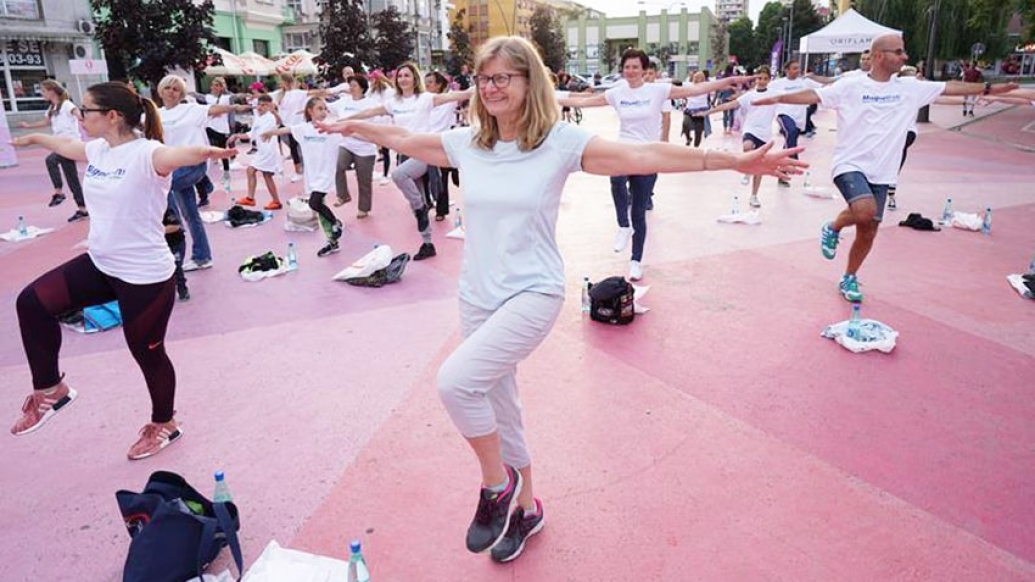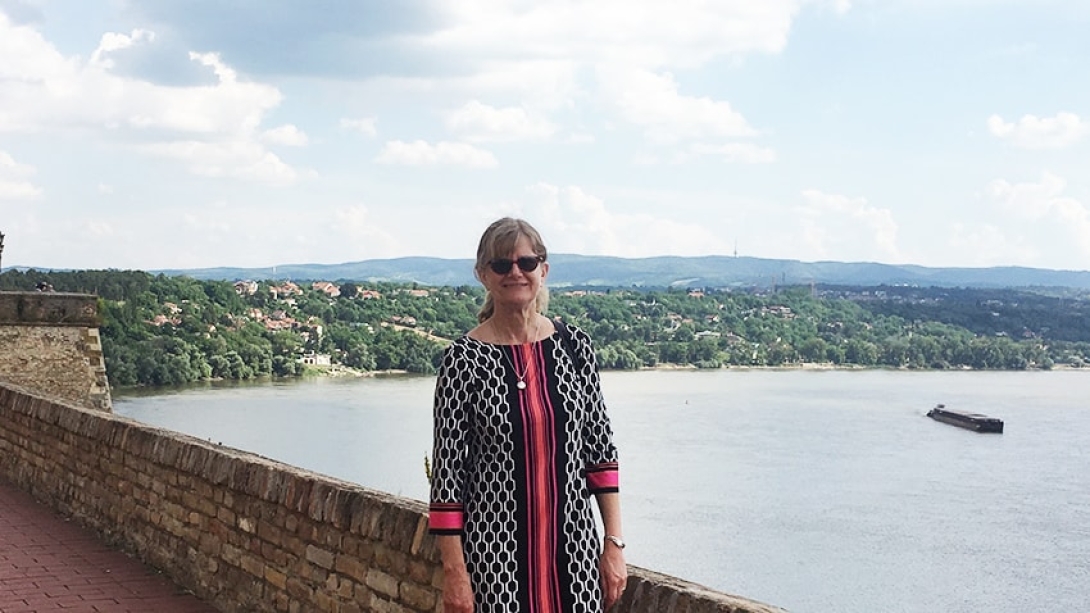To learn how other cultures’ meals and eating patterns affect cancer risk, a Michigan Medicine researcher is traveling the globe. See what’s on her plate.
7:00 AM
Author |

The foods that people in other countries put on their plates could teach Americans how to reduce their cancer risk.
In a global tour under the Fulbright Global Scholar Award, Michigan Medicine cancer researcher Zora Djuric, Ph.D., is studying eating habits in Serbia, Guatemala and Australia.
LISTEN UP: Add the new Michigan Medicine News Break to your Alexa-enabled device, or subscribe to our daily audio updates on iTunes, Google Play and Stitcher.
The goal: to understand how different cultures' menus impact cancer risk factors — and ways those findings might be applied in American kitchens to improve cancer prevention and outcomes.
"We do have personal control over the food we eat, and that made me interested in how we can use that to prevent cancer," says Djuric, also a research professor of family medicine and nutritional sciences at the University of Michigan.
Obesity increases the risk of at least half a dozen cancers, notes Djuric (pictured above with Active Serbia, a program that encourages physical activity).
So if a healthy diet prevents weight gain, then it could also help prevent cancer.
Dietary patterns offer insight
Djuric has just returned from conducting research in Serbia on the links between diet, obesity and cancer.
"Obesity is not as prominent in Serbia, so I was interested in understanding what it is about their culture that avoids the weight gain that is very common in Western cultures," she says.
MORE FROM THE LAB: Subscribe to our weekly newsletter
She found that the timing of calorie intake and diet composition can make a big difference.
Djuric worked from May 1 to June 26 with the Center of Excellence in Nutrition and Metabolism Research at the University of Belgrade, headed by Marija Glibetić, Ph.D., where she looked at the dietary components and timing of meals in preventing obesity.
Serbians tend to eat their big meal in the middle of the afternoon, around 3 or 4 p.m., Djuric found. Later, they eat a very light dinner, almost like a snack.
That schedule means Serbians are more likely to metabolize (or burn off) the food before going to sleep. And most of their meals are home-cooked with fresh market foods instead of prepackaged or ready-made ingredients.
Serbians typically eat a nutritious, mixed meal with lots of vegetables and a little meat in a large soup bowl. "Think goulash or one-pot stew," Djuric says.
But we don't have to copy Serbian eating patterns to prevent cancer, she says. We can just be inspired by it. The challenge she offers is to make vegetables the biggest part of the meal.
"I don't think it has to be goulash. It has to be adapted for our lifestyle," Djuric says.

New perspective, mutual understanding
Djuric says the Fulbright scholarship, which sponsors U.S. and foreign participants for international exchanges in many fields to advance mutual understanding, provides a unique opportunity.
"The program enriches my own research into different directions and also helps me with my existing projects," she says. "Because the United States tends to be isolated from the world, Fulbright gives us the chance to see different ways of doing things, different attitudes and different values."
Djuric says she loved working in another country because she could immerse herself in another culture.
"Working with people means working with people as people, and you can't do that unless you understand how they live, what they value and how they see things," she says. "The Fulbright scholarship allows scientists to learn more about other cultures and make an impact in other ways besides science."
Djuric is one of more than 800 U.S. citizens who will teach, conduct research or provide expertise abroad for the 2018-19 academic year through the program.
More travels ahead
Serbia was only the first leg of Djuric's travels. From Sept. 10 through Oct. 10, she'll head to Guatemala to conduct research with the Institute of Nutrition of Central America and Panama and the National Cancer Hospital.
SEE ALSO: Surgeon's Annual Mission Trip Brings New Smiles to Hundreds
"In Guatemala, nurses teach patients different botanicals that can be used for different symptoms that cancer patients may experience," Djuric says. "Not only do they teach their patients what herbs and plants to use, but how to grow them. I would like to document this knowledge."
The last stop of her tour will be Oct. 22 through Dec. 14 in Australia. She will work with a group headed by Marina Reeves, Ph.D., at the University of Queensland, studying lifestyle habits of late-stage breast cancer patients.
"This group of women has been excluded from studies of lifestyle interventions for improving health in survivorship," Djuric says. "Previous studies have largely focused on women with earlier stage breast cancer."
She hopes to use her nutrition knowledge to improve life during cancer survivorship. Breast cancer patients are at risk for recurrence and chronic conditions such as cardiovascular disease.
"This is where diet, lifestyle and control of weight gain over time could be very important," Djuric says.

Explore a variety of healthcare news & stories by visiting the Health Lab home page for more articles.

Department of Communication at Michigan Medicine
Want top health & research news weekly? Sign up for Health Lab’s newsletters today!





